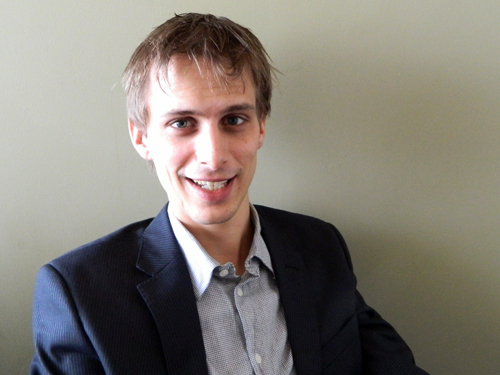
Immigration has become a burning political issue in many parts of the world, but the reality of immigration leads to “wildly different discourses” in different countries, according to new political science professor Edward Koning.
He grew up in the Netherlands, where a politician named Pim Fortuyn was killed in 2002 after saying that he wanted to close the country’s borders to Muslim immigrants. “He was the first in the Netherlands who successfully managed to politicize immigration,” says Koning, who adds that this made Dutch immigration politics very polarized. “If you said something negative about immigration, the left wing would call you racist; if you said something positive about immigration, the right wing would call you naive and hypocritical.”
The lack of even-handed and evidence-based discussion on this issue sparked Koning’s interest, and he opted to do his PhD research on immigration politics. More specifically, he compared political discussions on the social rights of immigrants in three different countries: the Netherlands, Sweden and Canada.
In the Netherlands, there is a fairly large number of immigrants receiving certain benefits, Koning explains. “Much of the political discussion suggests that immigrants are therefore lazy and wanting to abuse the system,” he says. “So the recommendations are to change policies so that immigrants have to have a longer period of residence and meet extra requirements before they are allowed to receive benefits.”
In Sweden, there are similar problems. It takes a male immigrant to Sweden an average of seven years from the date of his arrival in the country to the day he finds a job. Sweden accepts more refugees per capita than any other country in the world. Even in absolute numbers, Koning adds, Sweden accepts more refugees than countries with much larger populations, such as Germany and Italy.
“Similar problems,” he says, “but the dominant political response in Sweden is very different: they say we’re not doing enough for immigrants to help them integrate, they need more help.”
And what about Canada? “Historically, immigrants have out-performed the native-born Canadians,” he says, “but that’s changed in the past 20 years or so, and now the percentage of immigrants receiving benefits is about equal.” Canada’s approach has been to say, “We need immigrants who are going to succeed in this country, and we’ll focus on admitting those with the money or skills for success, and have fewer refugee and family immigrants.”
The facts about immigration are substantially the same in all three countries, says Koning, but the responses are not. Much has to do with how people see immigrants: if people see them as being “different,” then they wonder, “Why am I paying for them?”
In the Netherlands, after one party took a hard line against immigration and immigrants, the other parties shifted their policies as well. Koning says that in his interviews with politicians and civil servants, they told him they believed they had to take these positions or lose votes. In Sweden, a small political party did make some anti-immigration statements, “but the other parties just ignored them, they wouldn’t respond to their comments or questions, and they refused to work with them or cater to them,” Koning says.
Differing ideas about national identity contribute to this as well. Koning recalls that when Canada’s Reform Party suggested restricting immigrant rights, the response from other politicians was, “That’s un-Canadian.” As Koning points out, “Canada is a nation of immigrants, and the multicultural approach encourages Canadians to think in inclusive terms.”
Another factor is how benefits are structured. In Sweden, everyone is both simultaneously paying into the system and taking out. “Even the very wealthy get family allowances and other benefits,” says Koning. “These are not based on income. The structure is based on equal access so they tend not to think of disentitlement as a solution to a problem.” Instead, the focus has been on active labour policies to try to help people move into the job market.
“The Swedish system doesn’t always work that well,” Koning admits. “There is inevitable tension between a generous welfare system and open borders. The Canadian approach – being more restrictive about who gets in – seems to work most of the time, although you can say it is a bit unfriendly to the rest of the world. But at any rate, both the Swedish and the Canadian response seem preferable over the Dutch strategy of pushing immigrants off benefits.”
Given his obvious passion for politics, it’s perhaps surprising that Koning’s undergraduate studies were originally in Italian literature. He soon began to study political science as well and came to Queen’s University to do his PhD before being hired by U of G. Koning feels the collaborative and supportive approach of the department is a great fit for him – and he loves the bike trails in Guelph (like many Dutch people, he’s an avid cyclist) and the Dutch store downtown that sells specialties like strong-flavoured licorice.